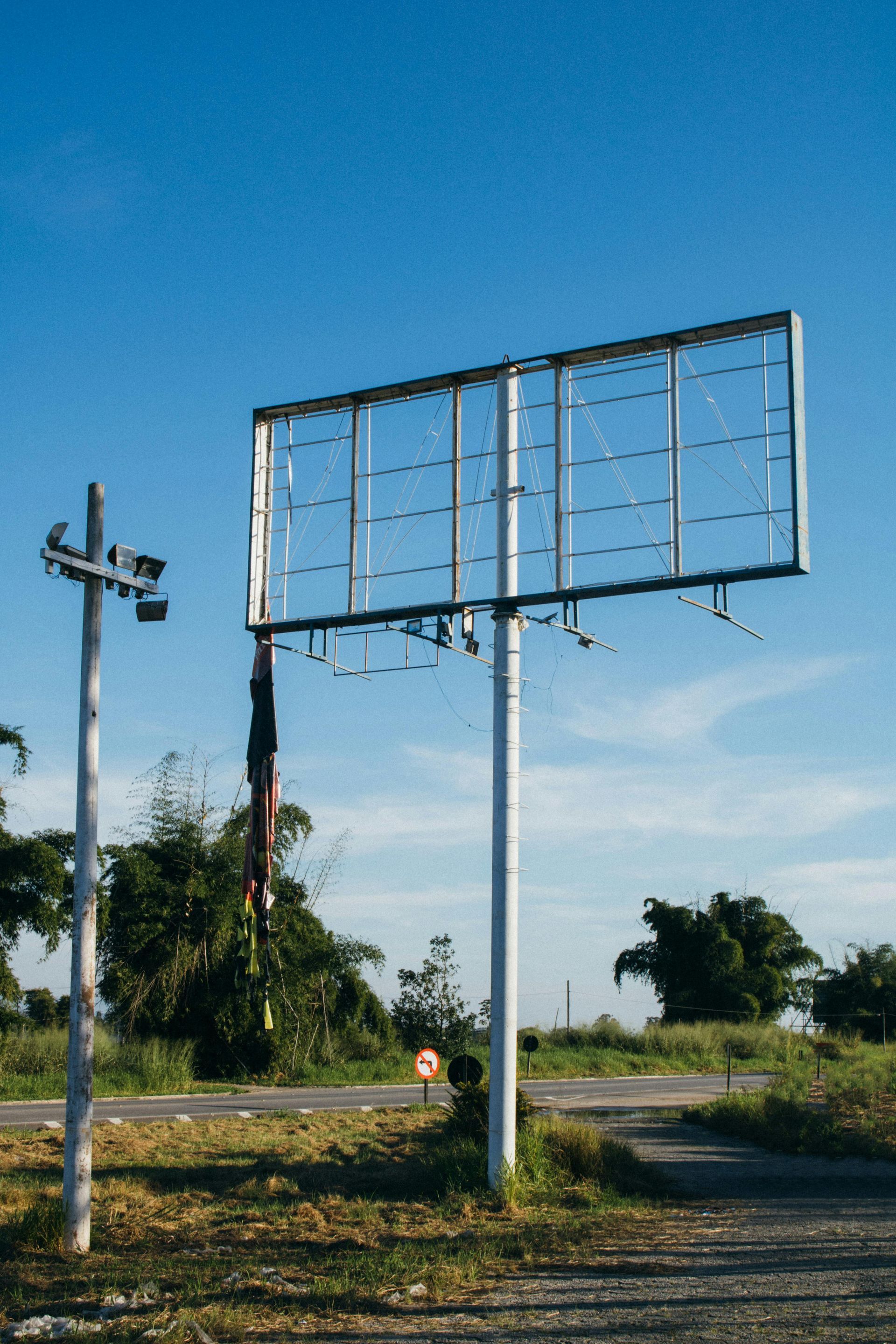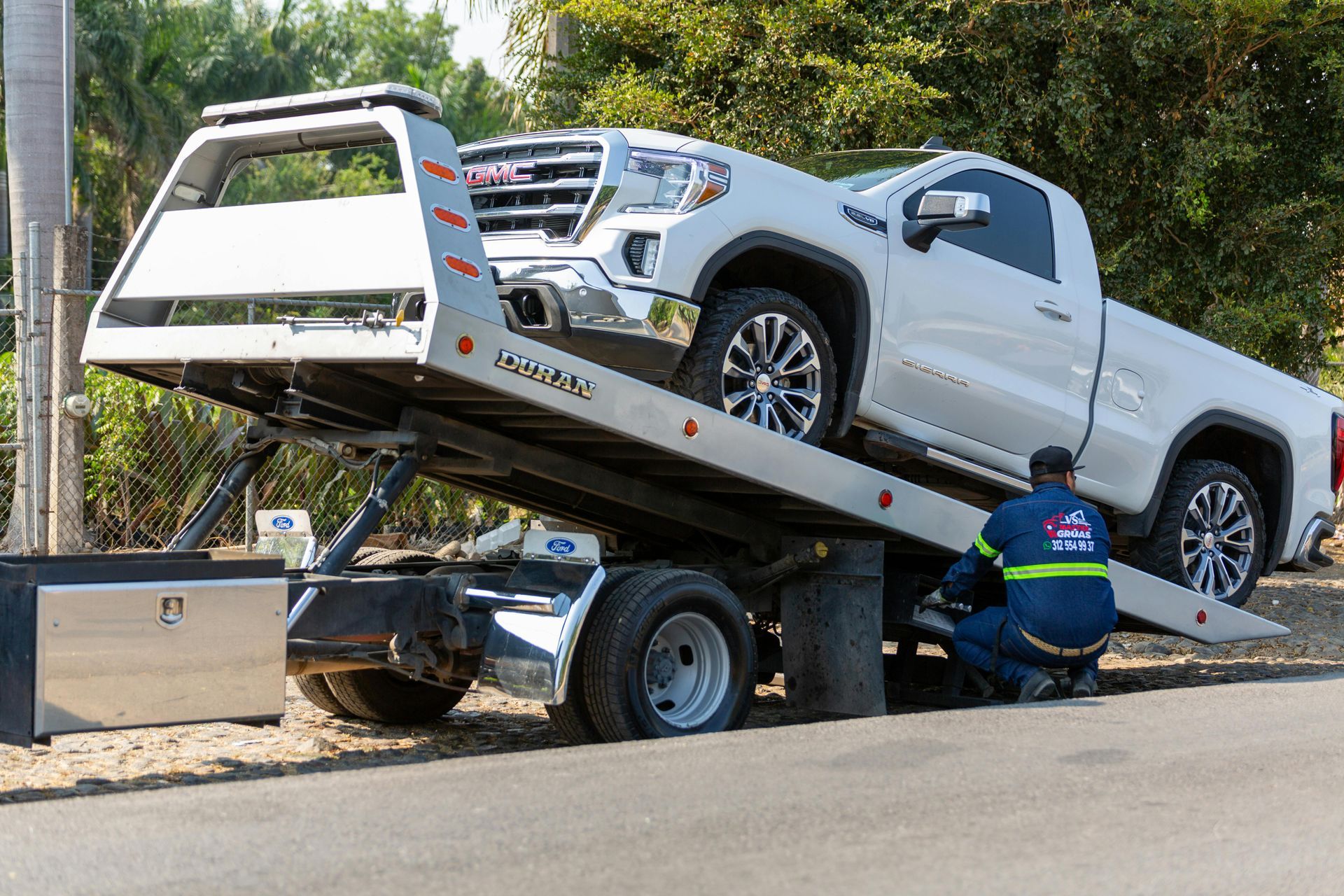Deciphering Criminal Law: Your Guide Through Legal Proceedings
Grant Grosgebauer • November 9, 2023
Criminal law covers a wide spectrum of offenses, investigations, and court proceedings. Understanding the fundamentals of this legal realm is crucial if you or a loved one is confronted with legal challenges.
Understanding the Nature of Criminal Offenses
Criminal offenses vary in severity, ranging from misdemeanors to felonies, each carrying distinct consequences. Familiarizing yourself with the charges you or your loved one faces and comprehending the potential repercussions is pivotal in preparing for legal proceedings.
Safeguarding Your Legal Rights
Regardless of the charges, every individual has fundamental legal rights. These include the right to legal representation, the presumption of innocence until proven guilty, the right to a fair trial, and protection against self-incrimination. Understanding and exercising these rights are essential in navigating the criminal justice system.
The Crucial Role of a Criminal Defense Attorney
When facing criminal charges, seeking the expertise of a skilled criminal defense attorney is imperative. They meticulously analyze the case, gather evidence, formulate a defense strategy, and represent you in court. A competent attorney safeguards your rights, challenges the prosecution's case, and strives to achieve the most favorable outcome possible.

At Tucker Legal Group, we believe in transparency and fairness when it comes to our legal fees. We understand that legal issues can be financially stressful, and we strive to provide high-quality representation at reasonable rates. Our fee structure is designed to accommodate various legal needs and financial situations. Flat Fees for Criminal Cases For criminal defense cases, we offer flat fee arrangements. The amount depends on the severity and complexity of the case. This flat fee includes: All necessary court appearances Case preparation and strategy development Negotiations with prosecutors Filing of essential motions Trial Our flat fee structure allows you to know the total cost upfront, eliminating the stress of unpredictable legal bills. Contingency Fees for Personal Injury Cases In personal injury cases, we work on a contingency fee basis. This means: You pay no upfront costs We only get paid if we win your case Our fee is a percentage of the settlement or verdict Our contingency fee rates are competitive with, and often lower than, many billboard law firms. This arrangement allows anyone to access quality legal representation, regardless of their financial situation. Retainer and Billable Hours for Family Law Cases For family law matters, we use a retainer system: You pay an initial retainer fee We bill our hours against this retainer If the retainer is depleted, we may request an additional retainer This system allows for flexibility as family law cases can vary greatly in complexity and duration. Our Commitment to Fair Pricing At Tucker Legal Group, we recognize that there's a significant gap between those who qualify for free legal aid and those who can afford to pay millions for representation. Our pricing aims to bridge this gap. Our approach to fees is influenced by our personal life experiences. We understand the financial pressures many people face and believe that quality legal representation should be accessible to all. We strive to offer fair prices that reflect both the value of our services and the realities of our clients' financial situations. We're always happy to discuss our fee structure in more detail during a consultation. Our goal is to provide you with excellent legal representation without causing undue financial stress. At Tucker Legal Group, we're not just your attorneys; we're your partners in navigating the legal system. Contact us today to learn more about how we can help you with your legal needs while respecting your financial situation.

Dealing with a traffic violation in Colorado can quickly become an overwhelming experience if you don't have proper guidance. These offenses range from relatively minor infractions to serious felony charges - each carrying different potential penalties. Classifications of Traffic Violations Traffic Infractions - Considered non-criminal violations that typically only result in fines. Class A infractions like toll road violations are more serious than Class B infractions like parking infractions. Misdemeanors - These criminal traffic offenses do not involve injuries but can still lead to potential jail time if convicted. Class 1 misdemeanors like drag racing or careless driving resulting in death have higher penalties than Class 2 like reckless driving. Felonies - The most severe level, felony traffic violations often involve cases with serious injuries or deaths. They use a class system from 1 to 6 based on the degree of the offense. Penalties range from fines and prison time up to potential life sentences. Common Examples of Each Category Infractions: Speeding, seat belt violations, expired registrations. Misdemeanors: Driving without insurance, disobeying traffic signals. Felonies: Vehicular homicide, DUI causing injury (or vehicular assault), hit-and-run causing serious bodily injury or death, or vehicular eluding. Understanding Your Options with a Ticket Receiving a traffic ticket initiates an important decision - whether to simply pay the fine and accept the violation or contest it in court. We explain the processes for both options in detail, covering: Payment methods and deadlines Accumulating points on your driving record Potential license suspension for excessive points Pleading not guilty and providing proper evidence Hiring an experienced traffic violations lawyer The reality is, many minor traffic infractions can be handled without retaining an attorney. We will be honest with you about the pros and cons of hiring an attorney, and will advise you of the steps that you can take in lieu of hiring an attorney. We Provide Trusted Legal Support Every clients situation is different, and we know that some traffic infractions while seemingly small, can greatly effect your livelihood and career. At the Tucker Legal Group, our team has extensive experience in handling all manner of traffic violations from minor infractions to felony offenses. Don't leave your rights unprotected or your driving record and insurance rates vulnerable. Allow our accomplished attorneys to advocate for the best possible outcome. Call us today for a free, confidential consultation. For more information about DMV point suspensions, visit the DMV website here: https://cdor.colorado.gov/hearings-homepage/motor-vehicle-hearings/point-suspensions Below is a list of frequent traffic charges and the points that may be assessed against your license if convicted.

When your freedom and future are on the line due to serious criminal charges, you need legal representation from attorneys who aren't afraid to take the case all the way to trial. At the Tucker Legal Group, Adam Tucker and Grant Grosgebauer have earned a reputation as tested and respected trial lawyers across Colorado, routinely taking on the state's highest-profile criminal cases. A Proven Courtroom Track Record While many law firms advertise their trial capabilities, the Tucker Legal Group has an unparalleled record of successfully trying complex criminal cases to verdict. In 2024 alone, we have already taken 5 major cases to trial involving the most serious allegations including: First-degree Murder Attempted Murder Aggravated Robbery Sexual Assault Burglary Felony Assault DF1 (class 1 drug felony) Our seasoned trial attorneys thrive in the crucible of the courtroom, showcasing their litigation skills, command of the law, and advocacy prowess before judges and juries. This courage to fight relentlessly for clients facing the toughest charges sets us apart. Maximizing Your Leverage for the Best Possible Outcome Prosecutors are keenly aware of which attorneys have demonstrated superior trial skills and a willingness to take every case to verdict if a fair resolution cannot be reached. This makes them more motivated to negotiate in good faith and put their best offer on the table from the start when dealing with the Tucker Legal Group. Our reputation provides a strategic advantage in pursuing favorable plea bargains, sentencing considerations, or outright dismissals of charges when warranted. Decades of Proven Courtroom Experience Whether you face allegations of homicide, sexual crimes, drug trafficking, white-collar offenses, or any other serious criminal matter, you can be confident the Tucker Legal Group will fight with unwavering tenacity to protect your rights. Our seasoned trial lawyers will not back down from taking your case all the way through trial if that's what delivering justice demands. Don't entrust your future to an overly cautious firm that may avoid trial at all costs. Contact the Tucker Legal Group today and have a proven trial lawyer in your corner, ready to battle fearlessly on your behalf.

If you are arrested for driving under the influence (DUI) or driving while ability impaired (DWAI) in Colorado, your driver's license can potentially be suspended by the Department of Motor Vehicles (DMV) - even before you are convicted of the offense. Understanding the DMV consequences is crucial to protect your driving privileges. License Suspension After DUI/DWAI Arrest In Colorado, if you are arrested for DUI or DWAI and refuse to submit to a chemical test (breathalyzer, blood test, etc.), your license can be automatically suspended by the DMV for at least 1 year upon arrest. Colorado's Express Consent Law requires any driver to consent to a chemical test if a police officer has reasonable grounds (or probable cause to believe the person is driving under the influence or their ability to operate a motor vehicle is impaired because of alcohol, drugs or both. Colorado revokes driving privileges for any individual who fails to cooperate with the chemical testing process requested by an officer during the investigation of an alcohol or drug-related DUI arrest (CRS 42-2-126). A first time refusal results in a one year revocation and a Persistent Drunk Driver designation. This designation requires the person to complete a Level II Alcohol and Drug Education and Treatment program. In addition, the person must hold a restricted license (Ignition Interlock) for a minimum of two years upon restoration or his or her driving privileges (CRS 42-2-132.5). Even if you take the chemical test and fail by having a blood alcohol concentration (BAC) above the legal limit of 0.08% for DUI, the DMV can still suspend your license after an arrest. Often times, if you elect a breath test and you are over the limit within two hours of driving, the officer will take your license immediately. Given that the results of the blood test can take longer to process, your license will not be disturbed until the results are received. In that case, a revocation letter may be mailed to your address on file. These administrative suspensions through the DMV happen separately from the criminal DUI/DWAI case. You only have a limited number of days after your arrest to request a DMV hearing to try to save your license. License Suspension/Revocation After DUI/DWAI Conviction If you end up pleading guilty or are convicted of DUI or DWAI in court, you will face additional DMV penalties, as drunk driving convictions add a certain amount of points to your license. A conviction for DUI will result in 12 points being assessed against your license, while a DWAI will result in 8 points. This distinction is critical for most adult drivers, as the DMV may suspend your license if you accrue 12 points in a calendar year. The DMV may also require you to install an ignition interlock device in your vehicle and pay fees to regain your driving privileges after the revocation period. Fight to Protect Your License The penalties for DUI and DWAI can extend far beyond just fines and potential jail time. With your ability to drive hanging in the balance through DMV suspensions and revocations, it's critical to mount a strong defense from an experienced DUI/DWAI lawyer like those at Tucker Legal Group. Our attorneys understand all the DMV processes and requirements, and can fight to prevent you from losing your license or get it reinstated as quickly as possible after an arrest or conviction. Don't put your driving privileges at risk - contact us today for a free consultation on your DUI or DWAI case.

For young adults convicted of violent felonies in Colorado, there is an alternative to serving time in the standard adult prison system - the Youthful Offender System (YOS). **CASE HIGHLIGHT** We recently had a client facing decades in prison on very serious charges, to include several counts of attempted murder - extreme indifference (a class 2 felony), and aggravated robbery with a deadly weapon (a class 3 felony). When our firm got on the case the offer from the district attorney was to serve more than 30 years in prison. After intense rounds of negotiations and additional investigation, our client was offered a 4 year sentence to YOS with suspended prison time upon successful completion of the program. This was a tremendous result for our client, and one that would not be possible without the experience of our criminal defense attorneys Adam Tucker and Grant Grosgebauer. This article will break down many of the common questions surrounding the YOS program, from what the program is, to who is eligible, and provide helpful information for anyone facing serious felony charges as as juvenile or young adult. What is the Youthful Offender System? The YOS is a specialized medium-security detention facility located in Pueblo, Colorado. It focuses on rehabilitation over punishment through education, counseling, and vocational training rather than a purely punitive environment. The Youthful Offender System (YOS) was established as a result of legislation enacted in the 1993 Special Session of the Colorado Legislature. YOS is a Colorado Department of Correction’s facility designed as a comprehensive model that delivers habilitation programs and services that prepare individuals for successful re-entry while providing for public safety. The Youthful Offender System delivers a four-part continuum of services: Orientation and Training Phase (OTP), Phase I (institutional); Phase II (pre-release); and Phase III (community supervision) all of which are administered by the Division of Prisons. The Youthful Offender System holds a unique and distinct place in the State’s correctional system. According to recent reports, around 75% of offenders sentenced to YOS will complete the program successfully. Compared to adult prisons, the Youthful Offender System has significantly lower recidivism rates. However, completing the intensive program is known to be very challenging. For more information, reference Colorado Revised Statute 18-1.3-407. Who Is Eligible for YOS? Only offenders between 14-19 years old convicted of eligible violent felonies and crimes of violence like assault, robbery or murder can potentially receive a YOS sentence at the judge's discretion. Those with juvenile offenses or Class 1 felonies are ineligible. Further, while a criminal case can take sometimes years to resolve, YOS can admit offenders up to 24 years old. That said, bed space is limited to 256 people, so each offender must be approved by the warden of the facility before admittance. Key Differences in a YOS Sentence A YOS sentence differs from a standard conviction in several ways: The judge suspends the typical jail sentence YOS terms are shorter determinate sentences (2-7 years max) No time is credited for time served pre-sentencing The adult felony remains on the offender's record after YOS completion While a YOS sentence may seem more favorable upfront compared to a lengthy prison term, failure to complete the program will result in having to serve the originally suspended sentence. Effective Advocacy Is Critical Receiving a Youthful Offender System placement requires an in-depth understanding of Colorado's complex sentencing laws and judicial system. Our skilled attorneys meticulously examine every case to identify all potential alternatives and sentencing options for young clients. Don't risk your freedom with an overly punitive sentence. Allow the Tucker Legal Group's expertise to guide you through Colorado's Youthful Offender System. Contact us for a consultation.

Being charged with a drug crime like possession, manufacturing, or distribution of drugs can have devastating consequences in Colorado. However, law enforcement must still follow strict constitutional guidelines when conducting searches, seizures, and arrests. At the Tucker Legal Group, our criminal defense team is comprised of recognized experts with decades of experience in analyzing search and seizure issues specific to drug offenses. We provide aggressive legal representation to ensure your rights were not violated and hold police accountable for any misconduct or overstepping of their authority. Police Cannot Search You or Your Property Without Proper Justification or Without a Warrant Law enforcement cannot simply search you, your vehicle, home, phone or other property anytime they wish without meeting legal standards. Under the Fourth Amendment, officers must have either a valid search warrant based on probable cause of criminal activity, or a n applicable exception to the warrant requirement. Exceptions to the Warrant Requirement Examples of exceptions to the warrant requirement recognized by the United States Supreme Court and Colorado Courts include: The Plan View Doctrine Exigent Circumstances Hot Pursuit Search Incident to Lawful Arrest Consent Inevitable Discovery Independent Source Doctrine Any evidence obtained through an unlawful search and seizure could be inadmissible due to the exclusionary rule and "fruit of the poisonous tree" doctrine. The analysis the court must conduct is typically very complex and multi-faceted. The Prosecution may argue that multiple exceptions apply, or that one exception, like inevitable discovery, cures an earlier improper search. Challenging Illegal Searches and Suppressing Evidence Our attorneys meticulously examine all aspects of how evidence was gathered against you, including: The legality of the initial police stop, detention or arrest, including any pre-text for the contact Compliance with warrant requirements under C.R.S. 16-3-303. Probable cause and veracity challenges to affidavits attached to search warrants If law enforcement overstepped constitutional limitations, we will file motions to suppress any illegally seized evidence. Getting key drug evidence thrown out or suppressed can severely weaken the prosecution's case or potentially lead to dismissal or charges. Don't risk a drug crime conviction based on compromised searches and seizures. Hire a drug lawyer to protect your rights and liberty with proven defense strategies. Our expertise in Colorado search and seizure laws provides strategic advantages to fight charges successfully. Contact us for a free, confidential consultation.

At the Tucker Legal Group, our unique approach to defending domestic violence cases yields serious results for our clients. In January and February 2024 alone, attorneys Adam Tucker and Grant Grosgebauer have secured 5 outright case dismissals for clients facing domestic violence charges: Case dismissed on the eve of trial for a client facing domestic violence charges including disorderly conduct and criminal mischief in Denver County. Case dismissed the week before trial for a client facing domestic violence charges including violation of a protection order in Denver County. Case dismissed the week before trial for a client facing domestic violence charges including violation of a protection order in Denver County. Case dismissed before trial for a client facing domestic violence assault and harassment charges in Jefferson County. Case dismissed for a client facing felony level domestic violence charges involving criminal mischief and harassment in Douglas County. Domestic violence cases can be sensitive and difficult to navigate, and the consequences of a conviction can have life-altering consequences. At the Tucker Legal Group our winning strategy is simple, yet hard-earned; we are known for being serious trial lawyers. While other lawyers may encourage you to take a deal or settle, we prepare from the outset to aggressively defend your interests at trial. When prosecutors know that your attorney has a track record of success at trial, they are forced to take a hard look at their evidence. If you've been charged with a domestic violence crime in Colorado, the attorneys at the Tucker Legal Group are here to provide an effective defense strategy tailored to your unique situation. What does it mean to be charged with a crime as an act of Domestic Violence? In Colorado, domestic violence (DV) is defined as an act or threatened act of violence against someone with whom the accused is or has been involved in an intimate relationship. This includes spouses, ex-spouses, dating partners, co-parents, and other close relations. DV is not an independent crime in itself but rather a sentencing enhancement that increases the penalties for offenses committed against intimate partners. Common charges involving a DV enhancement include; Assault (CRS 18-3-202 – 204) – knowingly or recklessly causing injury to another. Stalking (CRS 18-3-602) – credible threats or repeated behaviors that cause emotional distress. Harassment (CRS 18-9-111) – pushing, repeatedly contacting, or following someone in public. Child abuse (CRS 18-6-401) – any type of harm to a child under 16, this includes if an assault takes place in the presence of a child. Menacing (CRS 18-3-206) – threatening imminent harm to another, typically with a deadly weapon. False imprisonment (CRS 18-3-303) – unlawful and non-consensual detention. Violating a restraining order (CRS 18-6-803.5) – contacting a protected party either directly or indirectly. Criminal mischief (CRS 18-4-501) - knowingly damaging a thing of value. The Consequences of Domestic Violence Charges Even misdemeanor DV convictions can result in fines, probation, counseling, and a permanent criminal record that impacts housing, employment, and other opportunities. Felony convictions can mean years in prison. A fourth DV conviction leads to habitual offender status - a class 5 felony carrying 1-3 years in state prison. Beyond the criminal penalties, DV charges can affect child custody, professional licenses, military status, and the ability to possess firearms. Non-citizens may face deportation. The Legal Process in DV Cases Law enforcement takes domestic violence extremely seriously in Colorado. It is a mandatory arrest state, meaning officers must make an arrest if they have probable cause. DV cases are also fast-tracked, with incident reports and initial pleas entered right away. Even if the alleged victim recants or doesn't want to press charges, prosecutors often still pursue cases based on other evidence like videos, witnesses, etc. Victims who change their story are assumed to have ulterior motives. Building a Vigorous Defense At the Tucker Legal Group, we understand the complexities involved in DV cases and work tirelessly to advocate for our clients' rights and future. This includes thoroughly examining all evidence, testimony, and circumstances surrounding the alleged incident. Possible defense strategies include showing the incident was a misunderstanding, an act of self-defense, or that no intimate relationship existed in the first place. We may also pursue pre-trial diversion programs, deferred sentencing, plea bargains, or post-conviction record sealing when appropriate. No matter how difficult the situation seems, there are pathways to the best possible outcome. Contact us today for a free, confidential case review. Our compassionate counsel and aggressive defense are here to fight for you.

If you've been involved in an accident or suffered an injury in Colorado, you've likely seen the TV commercials and billboards for personal injury law firms promising big payouts. But flashy advertising doesn't equal great legal representation. At the Tucker Legal Group, we provide an entirely different experience for clients. TV and billboard lawyers typically operate high volume practices that make it impossible for them to give each case close, personalized attention. The reality is you'll likely never meet or speak with the actual attorney. Your case gets handed off to teams of paralegals you'll never meet. At the Tucker Legal Group, we provide white glove treatment and always make direct communication with our knowledgeable attorneys a priority: You'll get our personal cell phone numbers and have direct access to us anytime. We establish true relationships and really get to know our clients one-on-one. Our smaller, tight-knit legal team is dedicated to your case. No hand offs to anonymous staff. We clearly explain who is working on each aspect of your case and keep you informed every step of the way. Our dedicated, compassionate attorneys and staff will answer your calls and emails promptly. We tailor our legal strategy specifically to the details of your unique situation. You deserve the very best legal advocacy and an attorney who will fight passionately on your behalf. The Tucker Legal Group has decades of combined experience obtaining favorable verdicts and settlements for injury victims in Colorado. Contact us today for dedicated legal representation you can count on.

Being in an accident caused by a driver without adequate insurance often leaves victims struggling with financial hardship from medical bills, lost wages, and other damages. Thankfully, Colorado law allows you to file an underinsured motorist (UIM) claim with your own insurer to get the maximum compensation you deserve. The dedicated attorneys at Tucker Legal Group leverage our in-depth knowledge of Colorado insurance laws and years of litigation experience to thoroughly investigate all potential sources of coverage and ensure you receive full and fair payment. Here's how we can help maximize your Colorado UIM claim: What is a UIM Claim in Colorado? UIM coverage in Colorado provides benefits when the at-fault driver's liability payout is insufficient to fully cover your losses. For example, their policy pays $25,000 but your damages total $100,000. Your UIM may pay the $75,000 difference. Who Can File a UIM Claim in Colorado? Those insured under their own Colorado auto policy may potentially make a UIM claim after an accident with an underinsured driver, depending on specific eligibility terms. Drivers may also be covered by UIM policies belonging to other members of their household. Why File a Colorado UIM Claim? Pursuing compensation through your UIM allows recovery up to your policy limits, filling the gap left by the other driver's lack of sufficient coverage. This helps protect you from major financial losses. How We Maximize Your Colorado UIM Claim: Analyze Policies - We'll review all applicable insurance policies to find all potential sources of coverage for your losses. Prove Damages - Our team thoroughly investigates accidents and gathers evidence to build strong cases proving full damages. Demand Maximum Settlement - We leverage litigation experience and negotiating tactics to demand insurers pay full Colorado UIM policy limits. Litigation - If insurers refuse reasonable settlement, we're fully prepared to take legal action against them. Don't leave money on the table. The attorneys at Tucker Legal Group will pursue maximum compensation from every available source, including making the most of your Colorado UIM coverage. Contact us for a free consultation.

Being in a car accident can be a traumatic and stressful experience. Your first priorities should be seeking medical attention and reporting the accident to your insurance company. However, there are important legal steps you should take as well to protect your rights to fair compensation. Consulting with an experienced personal injury attorney is highly recommended. At Tucker Legal Group, we assist car accident victims in recovering damages for their injuries, pain and suffering, property damage, and other losses. Here is an overview of the legal process following an auto accident and how having a lawyer can make a major difference in the outcome of your case: Document the Scene - Take photos and videos of damage, skid marks, debris, street signs, weather conditions, and anything else relevant. Get contact info for witnesses. This evidence will be crucial later. Get Medical Treatment - Seek immediate medical care even for minor injuries, which could worsen over time. Your medical records will help verify your injuries and treatment needs. Report to Your Insurance Company - Alert your insurer about the accident as soon as possible, but avoid discussing details or admitting fault. Ask about your policy's injury and accident benefits. Do Not Settle Too Quickly - The insurance company may pressure you to accept a quick settlement before the full extent of your injuries and losses are known. Have an attorney negotiate on your behalf. Consult an Attorney - An experienced lawyer understands the claims process, liability laws, and negotiating tactics. They will deal with the insurance company while you focus on recovery. Investigation - Your attorney will order accident reports, take witness statements, collect medical records, consult experts, and fully investigate the accident circumstances. File a Claim - The lawyer will present a demand letter to the insurance company detailing your damages, requested compensation, and legal arguments. If rejected, a personal injury lawsuit may be filed. Negotiate a Settlement - Your lawyer will negotiate aggressively, backed up by evidence and legal authority, to obtain a fair settlement. Over 90% of injury claims settle out of court. Trial - If no settlement is reached, then your case would proceed to trial where your attorney will passionately argue your case before a judge and jury. The accomplished personal injury trial attorneys at Tucker Legal Group have a proven track record obtaining maximum compensation for accident victims. Don't leave your claim in the hands of an insurance company looking out for their own interests. Contact us today for a free consultation and case evaluation.

